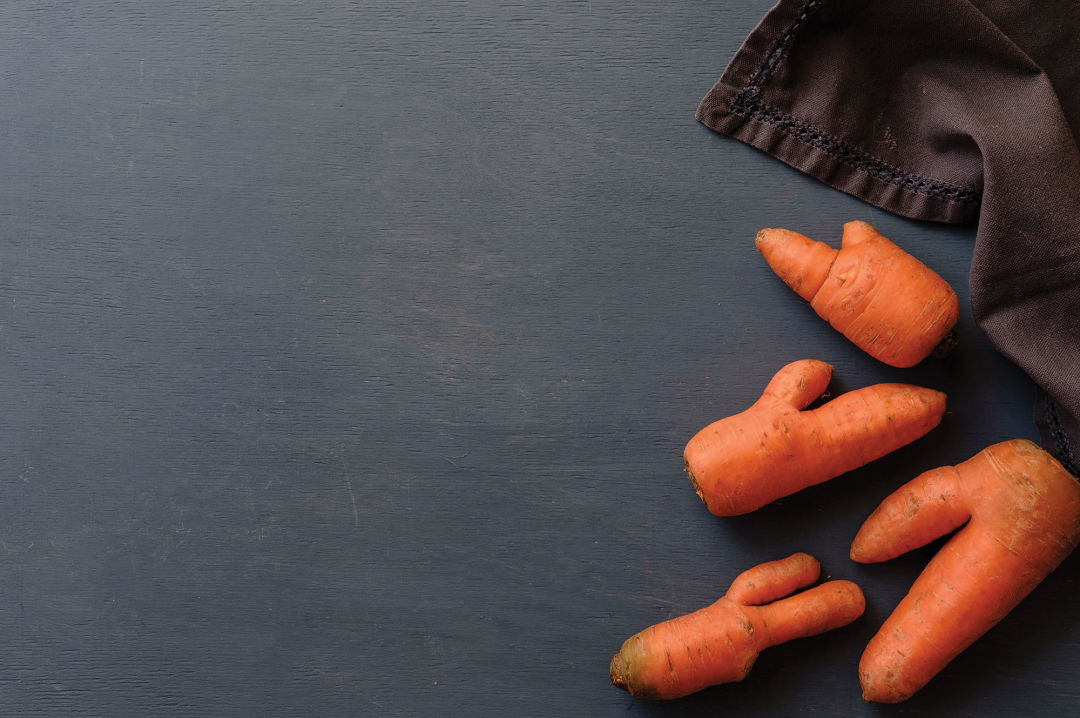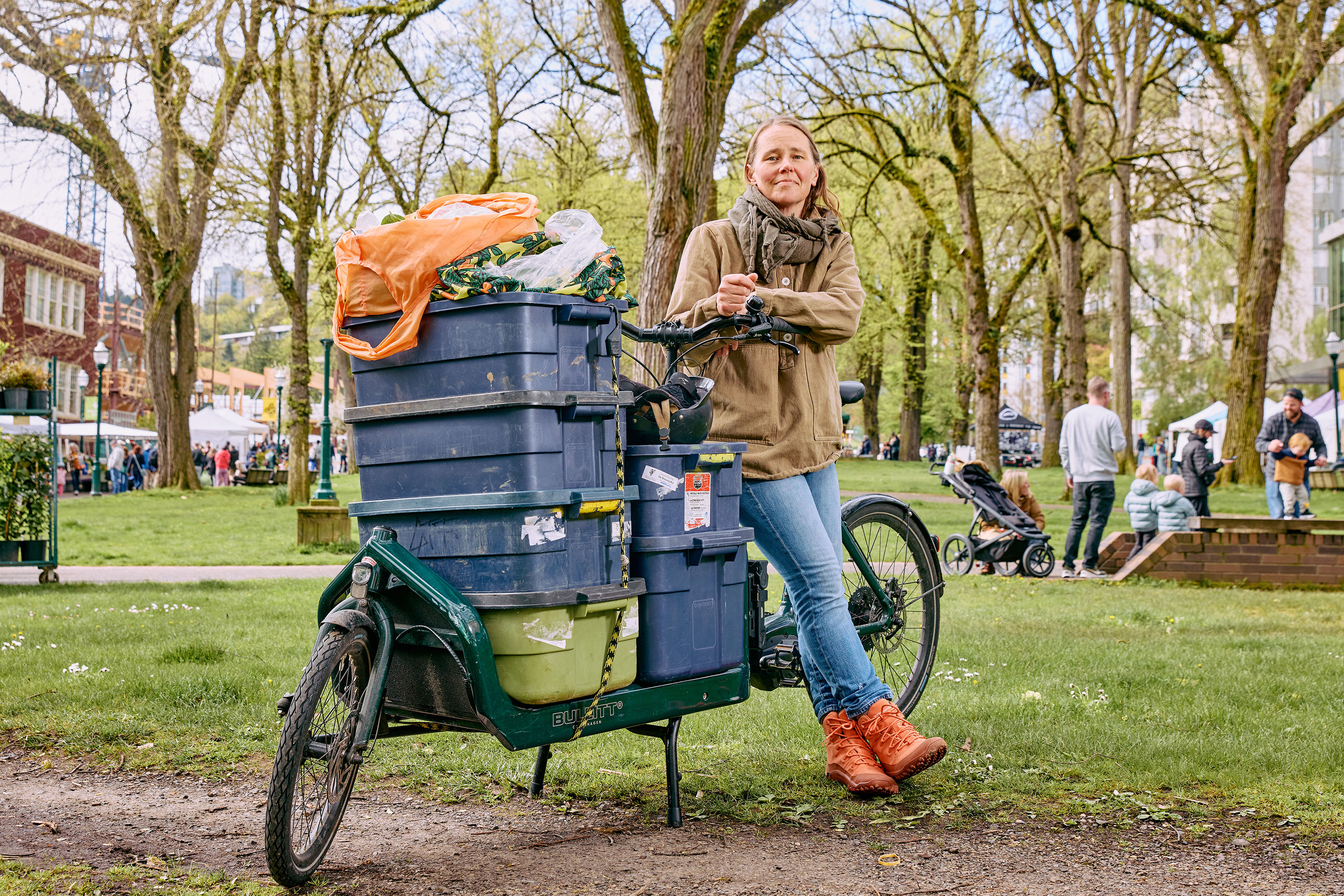Is Venture Capital–Backed Imperfect Produce Squeezing Portland’s Small Farmers?

Weekly food boxes from Bay Area start-up Imperfect Produce are mobile-enabled and delivery-based. Most local CSAs just aren't built that way.
On any given weekday, numerous Portlanders come home to wax-lined cardboard boxes filled with ugly fruit and veggies: maybe double-headed peaches, maybe forked carrots or deformed citrus.
Those boxes arrive courtesy of Imperfect Produce, a four-year-old Bay Area start-up on a mission to sell “US No. 2” grade produce—items too strange, misshapen, or awkwardly sized to make it to market. Since 2017, the company has built a receptive clientele in Portland, a city that prides itself on its consumer choices, pragmatic approaches to food waste, and taste for the offbeat.
Not everyone is charmed. Among the critics of Imperfect Produce: local farmers who offer subscribers their own boxes of fresh produce, known as CSAs (community supported agriculture). Holly Hutchason of the Portland Area CSA Coalition says area farms currently serve some 22,000 subscribers. The problem? That base has remained flat for nearly a decade, and individual orders are getting smaller. Some farmers say that venture capital–backed Imperfect Produce is siphoning interest from “keep it local” Portlanders—even though its own ecological footprint is hardly small.
“There’s a transparency issue,” says Spencer Suffling of Tanager Farm in Corbett. “The way I see it marketed feels a bit dishonest. A lot of [Imperfect’s] food is from midscale and large farms; it isn’t coming from small [farms] and local people.”
Farmers like Suffling feel Imperfect Produce is taking market share under false pretenses. But it’s also possible that the CSA model has become a clunky fit for the times. Where Imperfect Produce offers home delivery and online customization (you can even add on a case of LaCroix), the traditional CSA box requires car pick-up and patience with smaller farms’ more limited offerings.
Each week, Chris Overbaugh of Winter Green Farm helps pack boxes with fresh produce from the farm’s 171 acres west of Eugene. Winter Green’s CSA program, he says, is “entrenched.”
“This is our 28th season,” he says. “But last year, membership was down. We see our customer base getting older, their children moving out.”
For some farms, a static subscriber base means they might lack funds to diversify their crops (translation: the occasional box dominated by beets or radicchio). To avoid produce fatigue, Hutchason says some farms are now sending out smaller but more proportionally “balanced” boxes.
Meanwhile, Imperfect Produce is rapidly expanding across the nation. In early 2019, the company upgraded to a 74,500-square-foot warehouse in Clackamas, where around 160 workers pack boxes. The company says it does locally source some of its perishable items, from midsize farms like Scio’s Top Hat, Siri & Son in Damascus, and Montecucco Farms in Canby. In February, it also began offering other goods—like bags of grain with old branding and close-to-expiration jarred sauces.
If the local CSA is to compete with that, says Narendra Varma, executive director of Sherwood’s Our Table Cooperative, the model must evolve. Our Table, for example, is now doubling down on sociability: hosting classes, dinners, and seasonal events that draw people to its farm-style marketplace.
“What happened with the old CSA model was that the community part was going away,” Varma says.
Other farms are also trying new strategies. This season, for instance, Helvetia’s La Finquita del Buho introduced more pick-up sites closer to its Portland customers. When Moomaw Family Farm in Oregon City started its meat CSA a few years back, Nathan Moomaw’s prior experience at other farms with CSAs informed his own delivery-only model. “Convenience,” he says, “is a very high priority for customers these days.”




